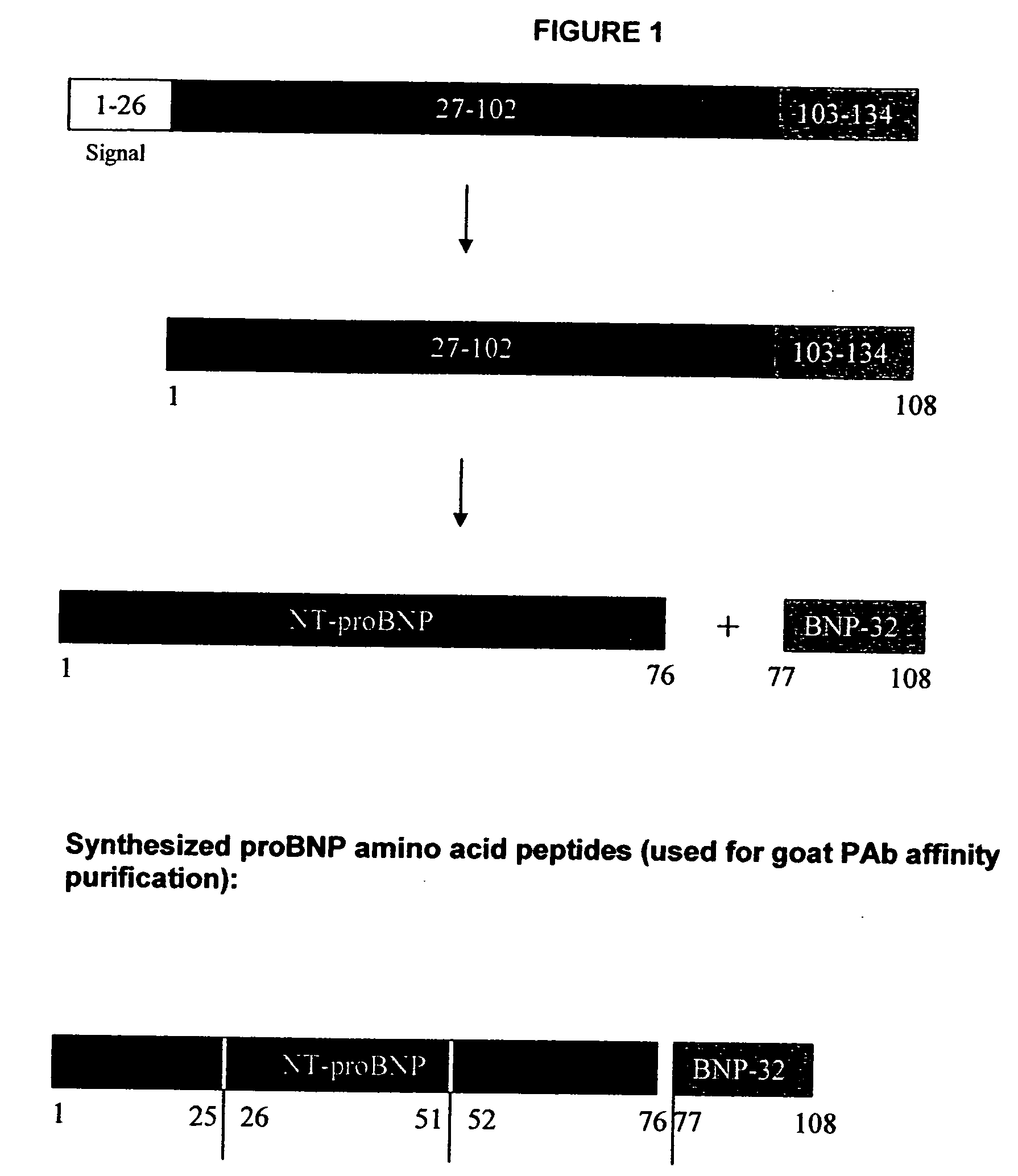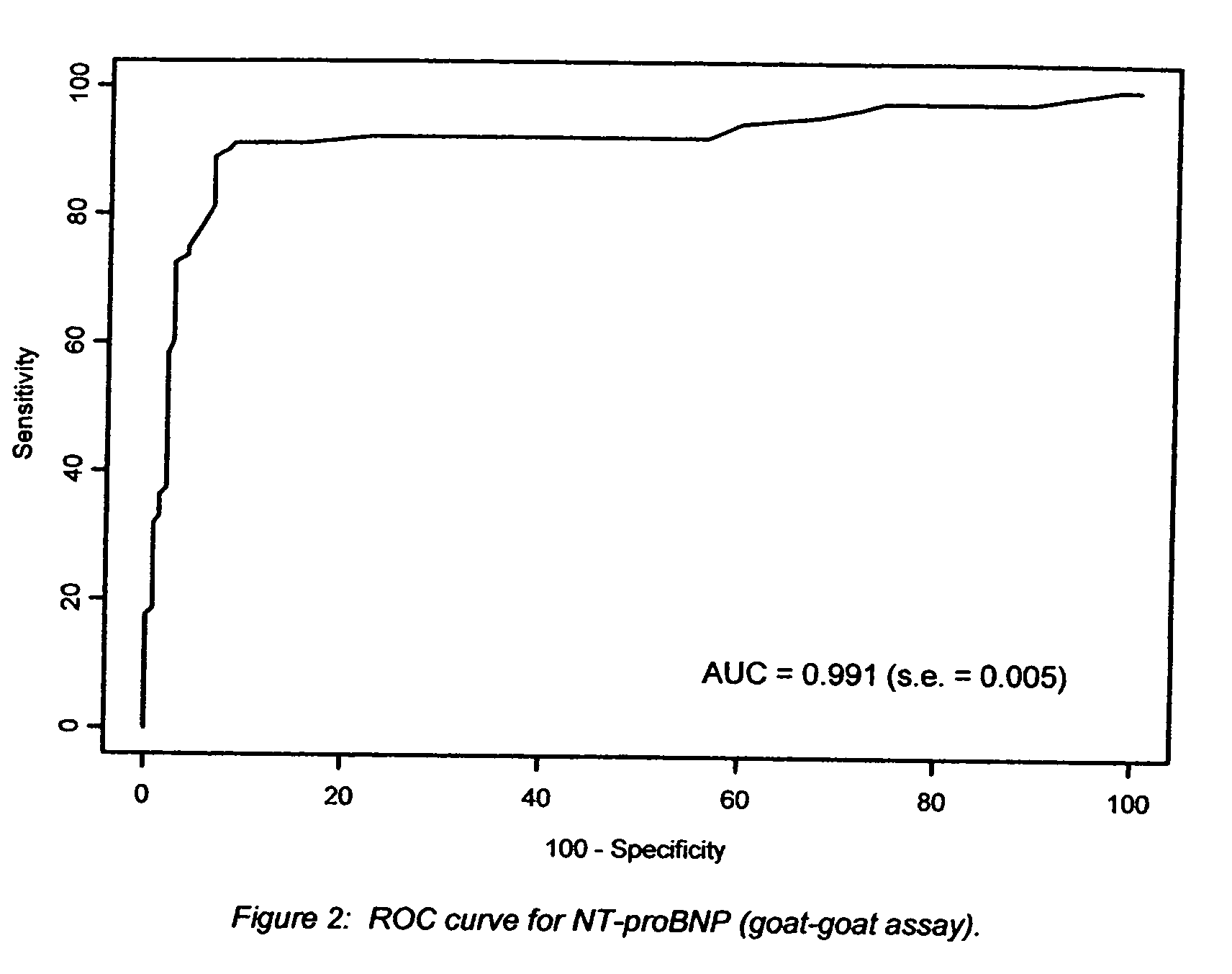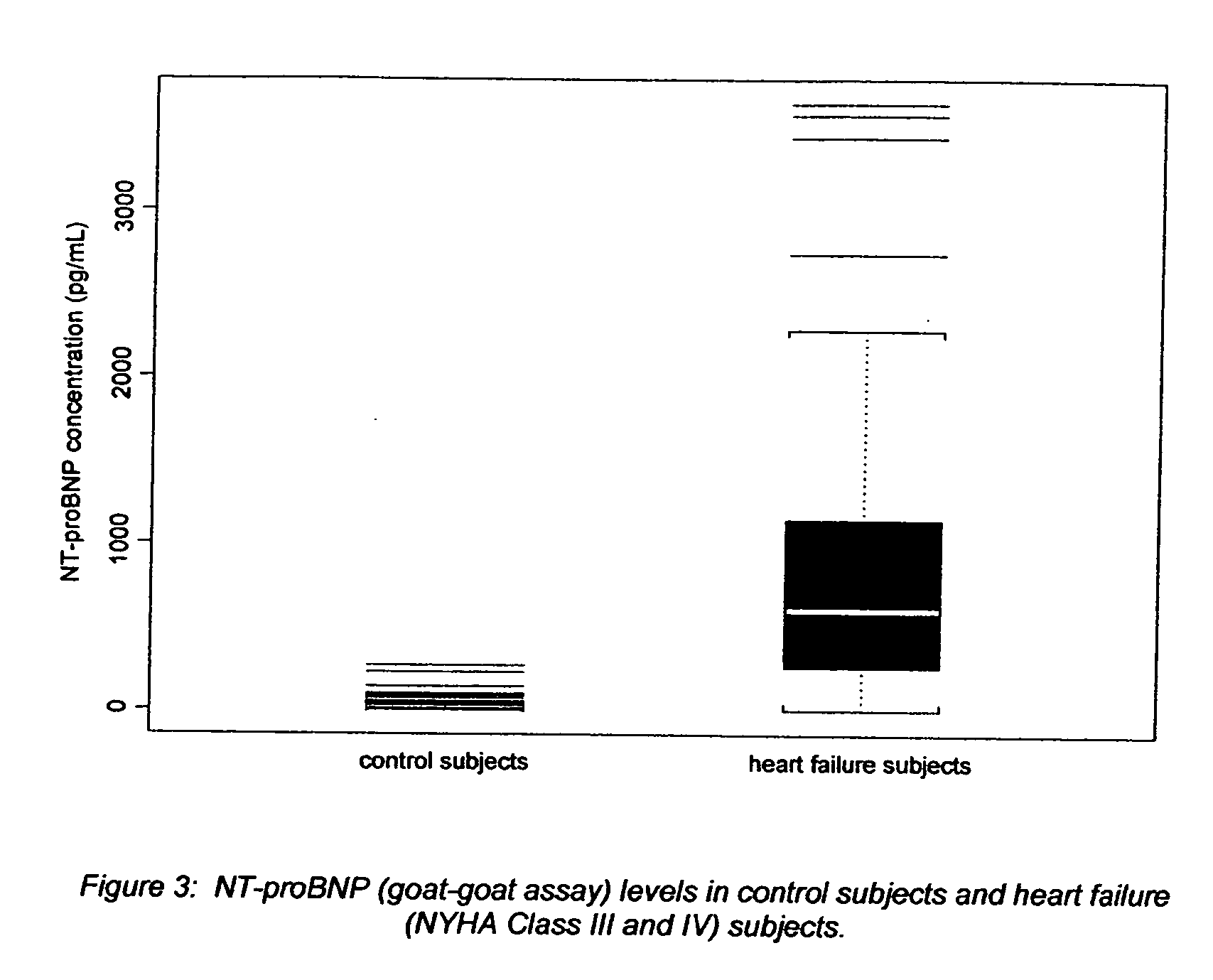Polyclonal-polyclonal ELISA assay for detecting N-terminus-proBNP
a polyclonal and protein assay technology, applied in the field of ntprobnp protein elisa assay, can solve the problems of antibody sensitivity generally too low to reach the necessary sensitivity in a test procedure, antibody which generally cannot bind to the whole molecule, and the sandwich test described in wo 93/24531 in a sample cannot be performed as described, so as to achieve accurate prediction of mortality
- Summary
- Abstract
- Description
- Claims
- Application Information
AI Technical Summary
Benefits of technology
Problems solved by technology
Method used
Image
Examples
Embodiment Construction
[0024] The Nt-proBNP test employs the sandwich ELISA technique to measure circulating Nt-proBNP in human plasma. Microplate wells coated with goat polyclonal anti-Nt-proBNP capture protein constitute the solid phase. Test subject plasma, standards and controls are added to the coated wells and incubated with incubation buffer. No sample extraction step is required. If Nt-proBNP protein is present in the test sample, it will be captured by Nt-proBNP specific antibody coated on the wells. After incubation and washing, a biotinylated goat polyclonal anti-Nt-proBNP detector antibody is added to the wells. The detector antibody binds to the Nt-proBNP, or immunogenic fragments thereof, e.g. polypeptide fragments which are recognized by said antibody, which are in turn bound to anti-NT-proBNP capture antibody, thus forming a sandwich. After incubation and washing, a horseradish peroxidase (HRP)-streptavidin conjugate solution is added to the wells. Following incubation and washing, an enzy...
PUM
| Property | Measurement | Unit |
|---|---|---|
| pH | aaaaa | aaaaa |
| temperature | aaaaa | aaaaa |
| concentrations | aaaaa | aaaaa |
Abstract
Description
Claims
Application Information
 Login to View More
Login to View More - R&D
- Intellectual Property
- Life Sciences
- Materials
- Tech Scout
- Unparalleled Data Quality
- Higher Quality Content
- 60% Fewer Hallucinations
Browse by: Latest US Patents, China's latest patents, Technical Efficacy Thesaurus, Application Domain, Technology Topic, Popular Technical Reports.
© 2025 PatSnap. All rights reserved.Legal|Privacy policy|Modern Slavery Act Transparency Statement|Sitemap|About US| Contact US: help@patsnap.com



